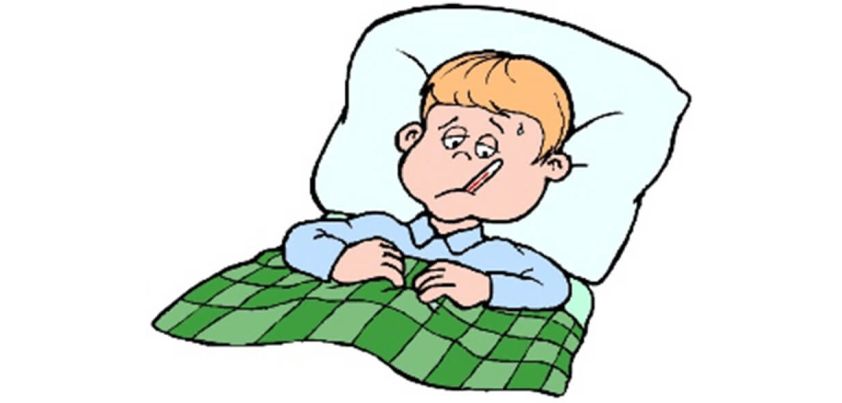 The message of this story from Ernest Hemingway is the importance of two-way parent-child communication. A doctor attributes a boy’s high temperature to influenza and prescribes medicine. Over the course of the day, the boy remains “detached” and begins to act strangely. He is sure the doctor and his father are hiding something more serious from him. Had the father taken the time to make sure his son fully understood what the doctor said, or the son raised his concerns immediately, both would have been spared a lot of anxiety. Themes: father-son relationships, innocence, misunderstanding, fear, masculinity, stoicism. More…
The message of this story from Ernest Hemingway is the importance of two-way parent-child communication. A doctor attributes a boy’s high temperature to influenza and prescribes medicine. Over the course of the day, the boy remains “detached” and begins to act strangely. He is sure the doctor and his father are hiding something more serious from him. Had the father taken the time to make sure his son fully understood what the doctor said, or the son raised his concerns immediately, both would have been spared a lot of anxiety. Themes: father-son relationships, innocence, misunderstanding, fear, masculinity, stoicism. More…
Category Archives: Quick Reads
The Last Unicorns
 This flash story by Edward Hoch begins with the startling news that thousands of years ago unicorns once roamed Africa. A clever trader manages to buy a pair and transport them to the Middle East. As unicorns are much stronger than horses, he plans to make his fortune by breeding them and selling the young. Before he can do this, a stranger arrives and offers to buy his unicorns. When he says “No”, the stranger tries to steal them. The angry trader drives the stranger away, little knowing that his unicorns will soon become the last two in the world. More…
This flash story by Edward Hoch begins with the startling news that thousands of years ago unicorns once roamed Africa. A clever trader manages to buy a pair and transport them to the Middle East. As unicorns are much stronger than horses, he plans to make his fortune by breeding them and selling the young. Before he can do this, a stranger arrives and offers to buy his unicorns. When he says “No”, the stranger tries to steal them. The angry trader drives the stranger away, little knowing that his unicorns will soon become the last two in the world. More…
Fatso
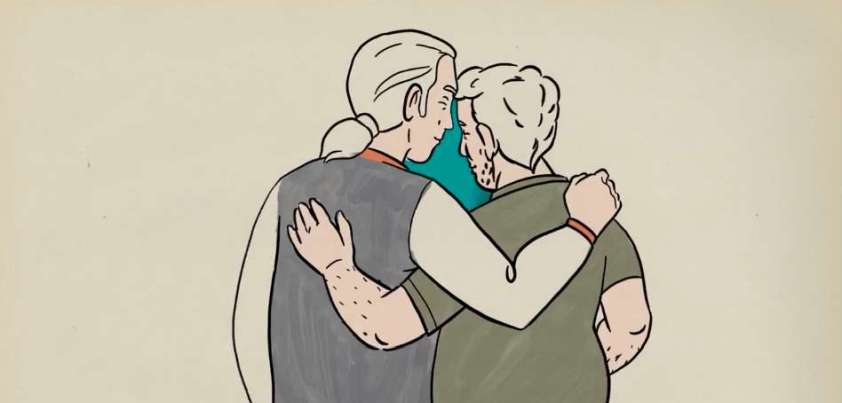 The concept of shapeshifting is not new. Examples exist in mythology, fairy-tales, and innumerable science fiction plots. The protagonist in this Etgar Keret story falls in love with a woman who is beautiful by day but, in a twist on Princess Fiona of Shrek fame, turns into a fat, hairy man by night. The man and womanly side remain lovers and even contemplate a family (ugh!), while he and the fat man become good friends. As absurd as the story might seem, it contains an important message about the role of friends in ensuring a complete and fulfilling life. More…
The concept of shapeshifting is not new. Examples exist in mythology, fairy-tales, and innumerable science fiction plots. The protagonist in this Etgar Keret story falls in love with a woman who is beautiful by day but, in a twist on Princess Fiona of Shrek fame, turns into a fat, hairy man by night. The man and womanly side remain lovers and even contemplate a family (ugh!), while he and the fat man become good friends. As absurd as the story might seem, it contains an important message about the role of friends in ensuring a complete and fulfilling life. More…
Ripe Figs
 This flash story by Kate Chopin packs several themes into less than 300 words. The most obvious are the different perspectives on the marking and passage of time. Maman-Nainaine is close to the land and marks events by natural cycles as opposed to the calendar. For her, like many older people, the weeks and months pass quickly. For Babette, thanks to the impatience of youth, time seems to move slowly when looking forward to something. The symbolism of ripening figs (representing the maturing of Babette into womanhood) and chrysanthemums (the “death flower” in Creole culture) indicate other possible themes. More…
This flash story by Kate Chopin packs several themes into less than 300 words. The most obvious are the different perspectives on the marking and passage of time. Maman-Nainaine is close to the land and marks events by natural cycles as opposed to the calendar. For her, like many older people, the weeks and months pass quickly. For Babette, thanks to the impatience of youth, time seems to move slowly when looking forward to something. The symbolism of ripening figs (representing the maturing of Babette into womanhood) and chrysanthemums (the “death flower” in Creole culture) indicate other possible themes. More…
Borrowing a Match
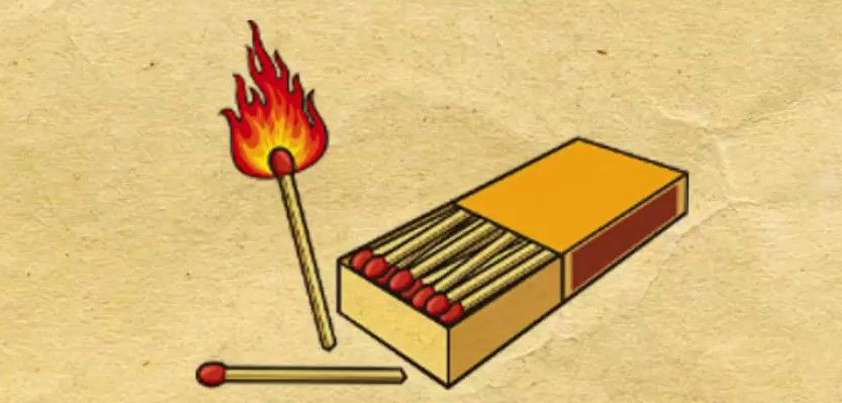 Have you ever asked someone if you could borrow something, and then watched them go to so much trouble looking for it that you wish you hadn’t asked? If so, you will understand the building frustration of the man in this Stephen Leacock story. All he asked of a “decent, ordinary-looking” stranger was the loan of a match. In the process of looking for one, the stranger destroys his overcoat and the parcels and letters he is carrying, and then threatens to beat his young son when he gets home. Finally, . . . (you’ll have to read the story to find out!) More…
Have you ever asked someone if you could borrow something, and then watched them go to so much trouble looking for it that you wish you hadn’t asked? If so, you will understand the building frustration of the man in this Stephen Leacock story. All he asked of a “decent, ordinary-looking” stranger was the loan of a match. In the process of looking for one, the stranger destroys his overcoat and the parcels and letters he is carrying, and then threatens to beat his young son when he gets home. Finally, . . . (you’ll have to read the story to find out!) More…
Kusum
 In this story by Khushwant Singh, a young university student belatedly has a sexual awakening. Overweight and physically unattractive, she has compensated by being a model student and good girl with a capital G. Accepting her lot, she has shunned boys and had no interest in sex. That is until her passions are stirred by an accidental encounter with a cheeky young street hawker who makes an obscene, possibly flirtatious gesture at her. She puts on make-up, looks in her mirror, and an attractive, dark-eyed girl smiles back. Themes include identity, self-image, alienation, self-confidence, physical vs. inner beauty, sexuality. More…
In this story by Khushwant Singh, a young university student belatedly has a sexual awakening. Overweight and physically unattractive, she has compensated by being a model student and good girl with a capital G. Accepting her lot, she has shunned boys and had no interest in sex. That is until her passions are stirred by an accidental encounter with a cheeky young street hawker who makes an obscene, possibly flirtatious gesture at her. She puts on make-up, looks in her mirror, and an attractive, dark-eyed girl smiles back. Themes include identity, self-image, alienation, self-confidence, physical vs. inner beauty, sexuality. More…
A Letter to God
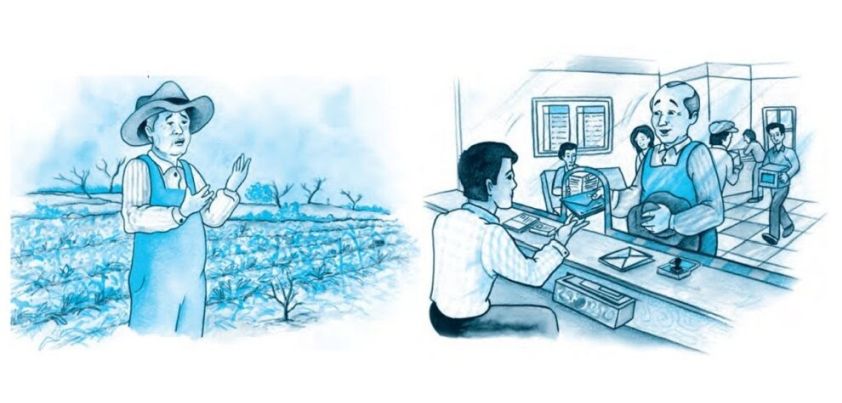 This inspirational story by Gregorio López Fuentes is about a hardworking farmer (Lencho) whose crops are destroyed in a hailstorm. Facing a year in which his wife and children will go hungry, Lencho decides to write to the only one he knows of that is sure to help them: God. He posts the letter, and his faith is such that he is not at all surprised when he gets a letter in reply containing money. In the humorous denouement, Lencho’s faith in God is vindicated, but not so his faith in the post office. Themes: faith, unpredictability, kindness, misunderstanding, ingratitude. More…
This inspirational story by Gregorio López Fuentes is about a hardworking farmer (Lencho) whose crops are destroyed in a hailstorm. Facing a year in which his wife and children will go hungry, Lencho decides to write to the only one he knows of that is sure to help them: God. He posts the letter, and his faith is such that he is not at all surprised when he gets a letter in reply containing money. In the humorous denouement, Lencho’s faith in God is vindicated, but not so his faith in the post office. Themes: faith, unpredictability, kindness, misunderstanding, ingratitude. More…
The Last Night of the World
 This Ray Bradbury story opens with a question: What would you do if you knew this was the last night of the world? A couple believe the world will end sometime during the coming night. The idea came in a dream shared by everyone they know. The couple decide the best thing to do is accept the fact and go through their evening routine as usual. They even manage to share a joke and go to bed laughing. What would you do? Themes include family, powerlessness, acceptance of the “inevitable”, comfort in routine, self-absorption and global awareness. More…
This Ray Bradbury story opens with a question: What would you do if you knew this was the last night of the world? A couple believe the world will end sometime during the coming night. The idea came in a dream shared by everyone they know. The couple decide the best thing to do is accept the fact and go through their evening routine as usual. They even manage to share a joke and go to bed laughing. What would you do? Themes include family, powerlessness, acceptance of the “inevitable”, comfort in routine, self-absorption and global awareness. More…
The Bakery Attack / Second Bakery Attack
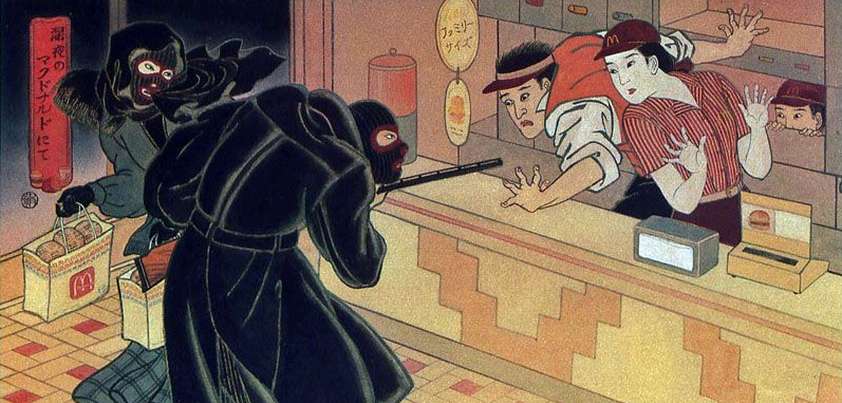 The Second Bakery Attack, one of Haruki Murakami’s most popular stories, is the sequel to an earlier, less well-known work. In the first story, an empty stomach symbolizes a life empty of ambition and intellectual stimulation. In the second, it symbolizes the insecurity inherent in a recently married couple’s (as yet) superficial relationship. The man has a lot to learn about his new wife, as becomes clear when she proves surprisingly adept at planning and carrying out a robbery. For the couple, the successful robbery proves a bonding, curse-lifting experience. Themes include marriage, insecurity, gender roles/’manhood’, the supernatural, change (Westernization). More…
The Second Bakery Attack, one of Haruki Murakami’s most popular stories, is the sequel to an earlier, less well-known work. In the first story, an empty stomach symbolizes a life empty of ambition and intellectual stimulation. In the second, it symbolizes the insecurity inherent in a recently married couple’s (as yet) superficial relationship. The man has a lot to learn about his new wife, as becomes clear when she proves surprisingly adept at planning and carrying out a robbery. For the couple, the successful robbery proves a bonding, curse-lifting experience. Themes include marriage, insecurity, gender roles/’manhood’, the supernatural, change (Westernization). More…
After Twenty Years
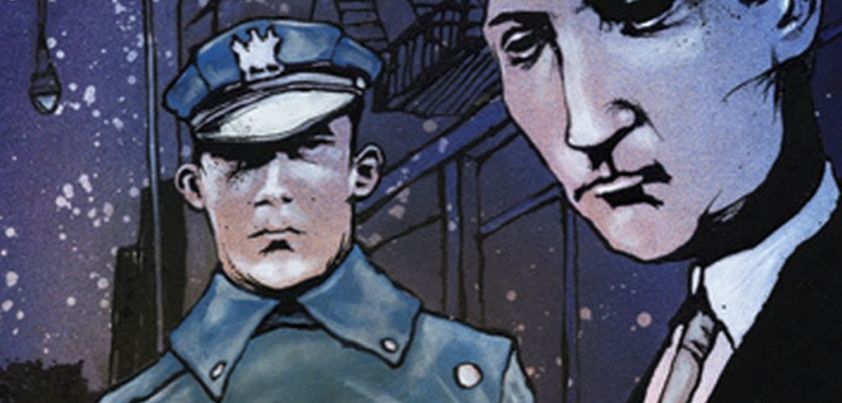 This story by O. Henry shows how keeping a promise to a friend can sometimes have adverse consequences. Two boyhood friends lose touch after one of them decided to “go West” to make his fortune. When he left, the two made a solemn promise to meet again outside their favorite New York restaurant in twenty years. Both kept the promise, and it is likely that after the meeting both regretted the way it went. Themes include friendship, honor (keeping one’s word), loyalty vs. duty, time and change, crime and justice. More…
This story by O. Henry shows how keeping a promise to a friend can sometimes have adverse consequences. Two boyhood friends lose touch after one of them decided to “go West” to make his fortune. When he left, the two made a solemn promise to meet again outside their favorite New York restaurant in twenty years. Both kept the promise, and it is likely that after the meeting both regretted the way it went. Themes include friendship, honor (keeping one’s word), loyalty vs. duty, time and change, crime and justice. More…
Solipsist
 Wikipedia defines solipsism as the idea that only one’s (your own) mind is sure to exist. This story by Fredric Brown takes an irreverent view of the universe and the place of one solipsist in it. Walter B. Jehovah has had a bad week. He decides to end it all… not just his life, but everything. After some initial success, he finds that the only way for him to cease to exist is to create a new universe and float around alone for millions of years until another suicidal solipsist emerges to replace him. Themes include perspective, existence, creation. More…
Wikipedia defines solipsism as the idea that only one’s (your own) mind is sure to exist. This story by Fredric Brown takes an irreverent view of the universe and the place of one solipsist in it. Walter B. Jehovah has had a bad week. He decides to end it all… not just his life, but everything. After some initial success, he finds that the only way for him to cease to exist is to create a new universe and float around alone for millions of years until another suicidal solipsist emerges to replace him. Themes include perspective, existence, creation. More…
All About Suicide
 Like many Luisa Valenzuela stories, a major theme of All About Suicide is the unchecked violence of daily life in 1960/70s Argentina. The story is notable for its unusual plot structure. It begins with a description of a shooting, travels back to (supposedly) irrelevant events in the distant past, fast forwards to the immediate past, and then re-describes the shooting. Thanks to the way Valenzuela playfully misleads readers with ambiguous possessive adjectives, the true nature of the shooting remains unclear until the last sentence. Other themes include treachery, suppression, guilt, courage, exposure, murder-suicide. More…
Like many Luisa Valenzuela stories, a major theme of All About Suicide is the unchecked violence of daily life in 1960/70s Argentina. The story is notable for its unusual plot structure. It begins with a description of a shooting, travels back to (supposedly) irrelevant events in the distant past, fast forwards to the immediate past, and then re-describes the shooting. Thanks to the way Valenzuela playfully misleads readers with ambiguous possessive adjectives, the true nature of the shooting remains unclear until the last sentence. Other themes include treachery, suppression, guilt, courage, exposure, murder-suicide. More…
The Open Window
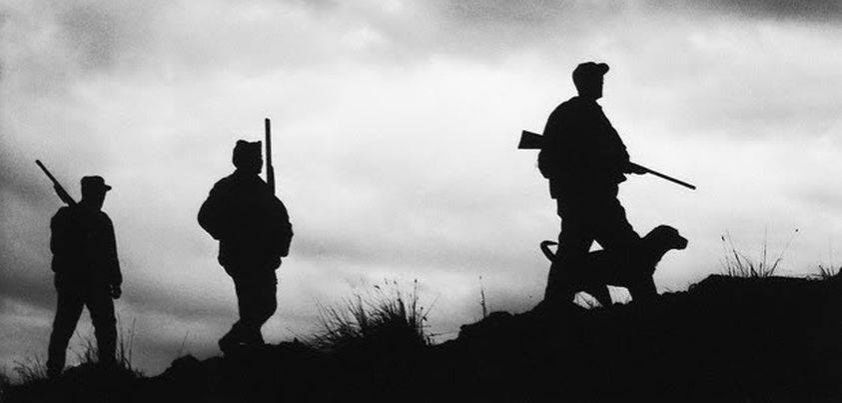 This story by Saki satirizes the social obligations imposed upon the middle and upper classes by late-Victorian/Edwardian etiquette. A pompous hypochondriac is holidaying in a peaceful country village as treatment for a nervous condition. He doesn’t like visiting strangers, but does so as a courtesy to his sister who has written letters of introduction to people she knows there. During one such visit, an imaginative fifteen-year-old girl plays an innocent practical joke on the neurotic man, causing him to run from her house in horror. Themes include social conventions, perception (appearance vs. reality), gullibility, escapism, deception. More…
This story by Saki satirizes the social obligations imposed upon the middle and upper classes by late-Victorian/Edwardian etiquette. A pompous hypochondriac is holidaying in a peaceful country village as treatment for a nervous condition. He doesn’t like visiting strangers, but does so as a courtesy to his sister who has written letters of introduction to people she knows there. During one such visit, an imaginative fifteen-year-old girl plays an innocent practical joke on the neurotic man, causing him to run from her house in horror. Themes include social conventions, perception (appearance vs. reality), gullibility, escapism, deception. More…
Open It / Khol Do
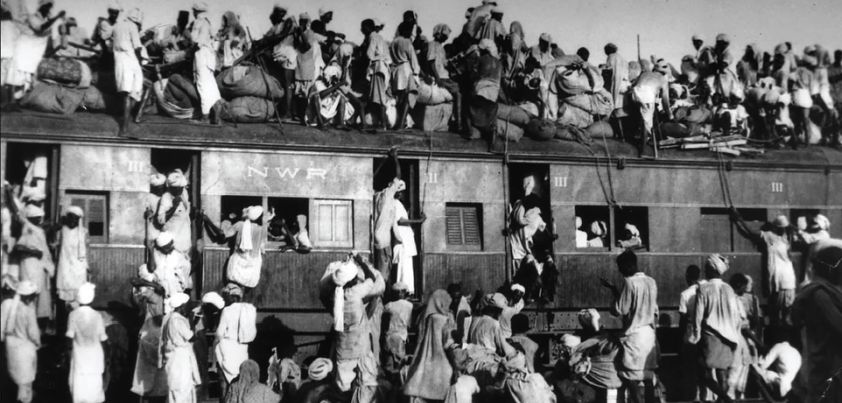 Set in the aftermath of India’s Partition, this story by Saadat Hasan Manto highlights how a total breakdown in law-and-order led to many predatory attacks against women. A father, separated from his seventeen-year-old daughter as they fled after his wife was disembowelled in front of them, desperately searches for her in a refugee camp for Indian Muslims evacuated to Pakistan. Some camp volunteers agree to look for the girl. They are successful, but do not return her. When found, her corpse displays a shocking conditioned reflex. Themes include displacement, chaos, gendered violence, depravity, fatherly love, despair. More…
Set in the aftermath of India’s Partition, this story by Saadat Hasan Manto highlights how a total breakdown in law-and-order led to many predatory attacks against women. A father, separated from his seventeen-year-old daughter as they fled after his wife was disembowelled in front of them, desperately searches for her in a refugee camp for Indian Muslims evacuated to Pakistan. Some camp volunteers agree to look for the girl. They are successful, but do not return her. When found, her corpse displays a shocking conditioned reflex. Themes include displacement, chaos, gendered violence, depravity, fatherly love, despair. More…
The Chef
 You don’t need to get far into this story from Andy Weir to realize that things aren’t as the protagonist describes them. When the doctor finally reveals the truth following some unnecessary theatrics involving the difference between a teaspoon and tablespoon, most readers experience a mild “aha moment” and move on to something else. It is only the very perceptive and those who take the time to follow Weir’s advice and read the story again knowing the outcome, who realize the true horror of the life the poor woman must have lived. More…
You don’t need to get far into this story from Andy Weir to realize that things aren’t as the protagonist describes them. When the doctor finally reveals the truth following some unnecessary theatrics involving the difference between a teaspoon and tablespoon, most readers experience a mild “aha moment” and move on to something else. It is only the very perceptive and those who take the time to follow Weir’s advice and read the story again knowing the outcome, who realize the true horror of the life the poor woman must have lived. More…
Other People
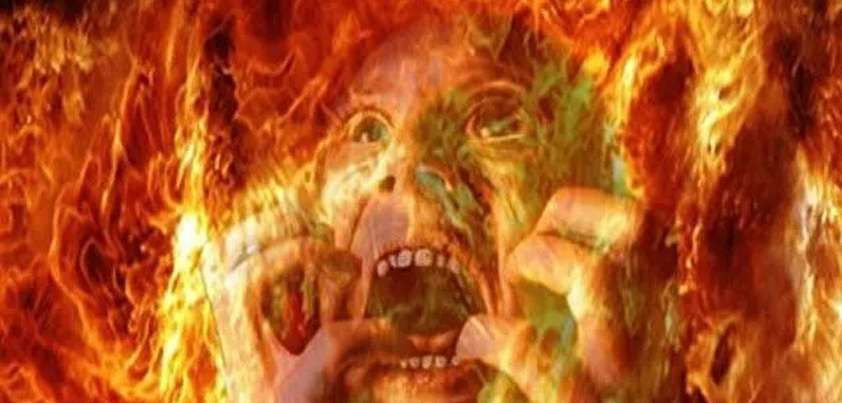 This Neil Gaiman is not for the fainthearted. Upon entering a room in Hell, a man meets the “demon” that will be his tormentor. After suffering excruciating pain from each of the 211 torture instruments lining the walls, he asks the demon what comes next. The answer: the true pain begins! And so it does for several thousand more years. In the last sentence, we learn why Gaiman agreed to change the title from his original choice (Afterlife) to Other People. Themes include sin and punishment, and the nature of Hell (suffering and inflicting dehumanizing pain and suffering). More…
This Neil Gaiman is not for the fainthearted. Upon entering a room in Hell, a man meets the “demon” that will be his tormentor. After suffering excruciating pain from each of the 211 torture instruments lining the walls, he asks the demon what comes next. The answer: the true pain begins! And so it does for several thousand more years. In the last sentence, we learn why Gaiman agreed to change the title from his original choice (Afterlife) to Other People. Themes include sin and punishment, and the nature of Hell (suffering and inflicting dehumanizing pain and suffering). More…
Girl
 In this story by Jamaica Kincaid, a mother provides what she believes to be essential ‘life advice’ to her maturing daughter. This ranges from tips for young girls (how to cook, sew, sweep, etc.) to things older girls should know (how to love a man, bring on a miscarriage, etc.). The advice consists of a single sentence of 649 words. The daughter gives only two responses, the first of which the mother ignores. The major theme is motherhood: the mother’s concern that her daughter will become a “slut”. Other themes: coming of age, gender stereotypes, generation gap, appearances. More…
In this story by Jamaica Kincaid, a mother provides what she believes to be essential ‘life advice’ to her maturing daughter. This ranges from tips for young girls (how to cook, sew, sweep, etc.) to things older girls should know (how to love a man, bring on a miscarriage, etc.). The advice consists of a single sentence of 649 words. The daughter gives only two responses, the first of which the mother ignores. The major theme is motherhood: the mother’s concern that her daughter will become a “slut”. Other themes: coming of age, gender stereotypes, generation gap, appearances. More…
Bigfoot Stole My Wife / I Am Bigfoot
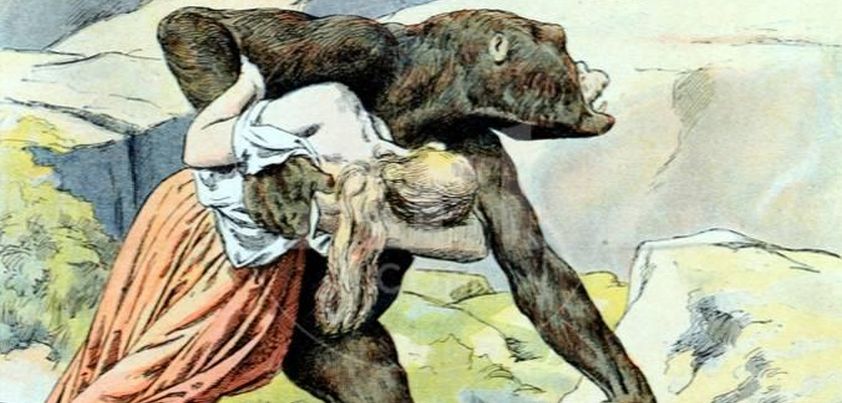 Today we have two linked stories from Ron Carlson: Bigfoot Stole My Wife and I am Bigfoot. In the first, despite a host of context clues suggesting that the protagonist’s wife has left him, shame and denial lead him to believe that the legendary Bigfoot has abducted her. Using flawed logic, he argues that this must be true because another seemingly impossible event in his life was also true. The story opens with the line: “The problem is credibility.” In the ironic second story, credibility comes as Bigfoot issues a fearful warning to all men of the world. More…
Today we have two linked stories from Ron Carlson: Bigfoot Stole My Wife and I am Bigfoot. In the first, despite a host of context clues suggesting that the protagonist’s wife has left him, shame and denial lead him to believe that the legendary Bigfoot has abducted her. Using flawed logic, he argues that this must be true because another seemingly impossible event in his life was also true. The story opens with the line: “The problem is credibility.” In the ironic second story, credibility comes as Bigfoot issues a fearful warning to all men of the world. More…
They’re Made Out Of Meat
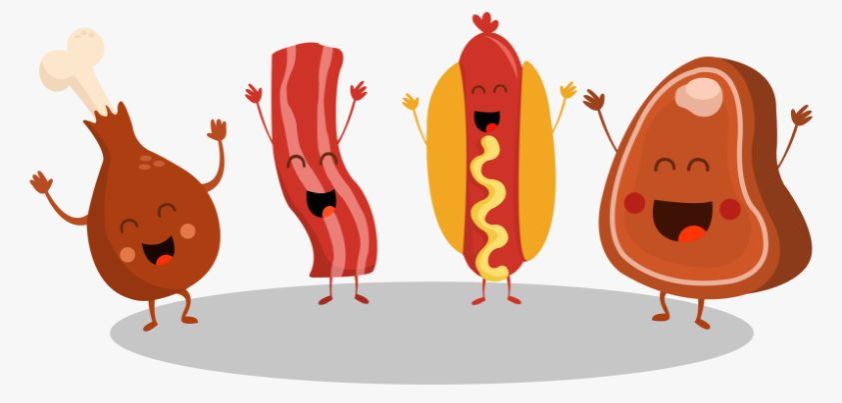 At first read, this very short story by Terry Bisson appears to be a humorous exchange with little substance. Two alien space explorers are discussing whether to make contact with a newly discovered intelligent life form. They are uneasy about it because the life form seems to be composed entirely of meat. The major theme of the story is prejudice: the aliens consider themselves above all other life. How can beings so different to them be capable of such advanced thought? Also, an interesting dietary theme: Is it right that one sentient life form (man) kills and eats others (animals)? More…
At first read, this very short story by Terry Bisson appears to be a humorous exchange with little substance. Two alien space explorers are discussing whether to make contact with a newly discovered intelligent life form. They are uneasy about it because the life form seems to be composed entirely of meat. The major theme of the story is prejudice: the aliens consider themselves above all other life. How can beings so different to them be capable of such advanced thought? Also, an interesting dietary theme: Is it right that one sentient life form (man) kills and eats others (animals)? More…
Identities
 In this story from W. D. Valgardson, the smell of burning leaves on a Saturday morning evokes pleasant memories for a man of childhood drives in the countryside. With his family otherwise occupied, he decides to leave his up-market neighborhood and re-live the experience. Unfortunately, the open spaces of his youth have been replaced by urban sprawl. Late in the day, he finds himself lost in a seedy, seemingly dangerous neighborhood. A stop to call home and warn his family that he will be late for dinner is the last act in his life. Themes: nostalgia, appearance, prejudice, stereotyping, misjudgement. More…
In this story from W. D. Valgardson, the smell of burning leaves on a Saturday morning evokes pleasant memories for a man of childhood drives in the countryside. With his family otherwise occupied, he decides to leave his up-market neighborhood and re-live the experience. Unfortunately, the open spaces of his youth have been replaced by urban sprawl. Late in the day, he finds himself lost in a seedy, seemingly dangerous neighborhood. A stop to call home and warn his family that he will be late for dinner is the last act in his life. Themes: nostalgia, appearance, prejudice, stereotyping, misjudgement. More…
Wedding Night
 In this touching story by Sait Faik Abasıyanık, a Turkish father belatedly registers the birth of his sixteen-year-old son so he can get married. Fortunately, the boy looks much older than he is. The minimum marriage age is twenty, and he must be registered as being twenty-four because his bride, who he has never seen, is twenty-six! The poor boy has been plied with alcohol, and is trembling like he did at his circumcision four years earlier. After a shaky start, they emerge from the bridal chamber happy. Themes include tradition, arranged marriages, naivety, anxiety, confusion. More…
In this touching story by Sait Faik Abasıyanık, a Turkish father belatedly registers the birth of his sixteen-year-old son so he can get married. Fortunately, the boy looks much older than he is. The minimum marriage age is twenty, and he must be registered as being twenty-four because his bride, who he has never seen, is twenty-six! The poor boy has been plied with alcohol, and is trembling like he did at his circumcision four years earlier. After a shaky start, they emerge from the bridal chamber happy. Themes include tradition, arranged marriages, naivety, anxiety, confusion. More…
Passing Wind
 For me, the most enjoyable aspect of this humorous flash story from Lydia Davis is that it describes an embarrassing situation we have all probably encountered: after going to great lengths to silently pass wind among a group of strangers, the smell gives us away. Do we say nothing, excuse ourselves, or immediately cast a dirty look at the person standing next to us? Here the narrator faces a slightly different dilemma. She tries to think of a polite way to let a guest know that if he didn’t do it, then it wasn’t her but the dog. More…
For me, the most enjoyable aspect of this humorous flash story from Lydia Davis is that it describes an embarrassing situation we have all probably encountered: after going to great lengths to silently pass wind among a group of strangers, the smell gives us away. Do we say nothing, excuse ourselves, or immediately cast a dirty look at the person standing next to us? Here the narrator faces a slightly different dilemma. She tries to think of a polite way to let a guest know that if he didn’t do it, then it wasn’t her but the dog. More…
A Man Who Had No Eyes
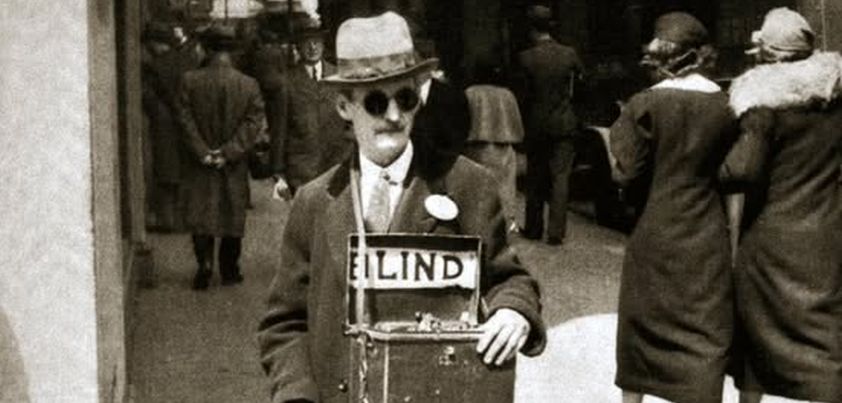 In this story by MacKinlay Kantor, a blind peddler stops a man in the street to sell him a cigarette lighter. The man buys one and, in the hope of getting extra money, the peddler tells him a sob story about how he lost his sight after being held back while trying to escape poison gas released during a factory chemical explosion. The customer points out an error in his story, and how blindness need not be a hindrance to success. Themes include positivity and self-belief vs. denial and self-pity, bitterness, manipulation, deceit, cowardice. More…
In this story by MacKinlay Kantor, a blind peddler stops a man in the street to sell him a cigarette lighter. The man buys one and, in the hope of getting extra money, the peddler tells him a sob story about how he lost his sight after being held back while trying to escape poison gas released during a factory chemical explosion. The customer points out an error in his story, and how blindness need not be a hindrance to success. Themes include positivity and self-belief vs. denial and self-pity, bitterness, manipulation, deceit, cowardice. More…
My Name / Geraldo No Last Name
 What’s in a name? These two vignettes from Sandra Cisneros answer the question from different viewpoints. The narrator is unhappy with the anglicized spelling of her name (Esperanza) but proud of what it symbolizes — the strength of her great-grandmother who defied the Mexican stereotype of women being weak and subservient to their men. It provides a link to her heritage. Neighbor Geraldo, who illegally entered the USA for a better life, has no official name or identity. One moment, full of life and promise at a dance club. The next, dead with nobody to care or mourn his passing. More…
What’s in a name? These two vignettes from Sandra Cisneros answer the question from different viewpoints. The narrator is unhappy with the anglicized spelling of her name (Esperanza) but proud of what it symbolizes — the strength of her great-grandmother who defied the Mexican stereotype of women being weak and subservient to their men. It provides a link to her heritage. Neighbor Geraldo, who illegally entered the USA for a better life, has no official name or identity. One moment, full of life and promise at a dance club. The next, dead with nobody to care or mourn his passing. More…
The King of Jazz
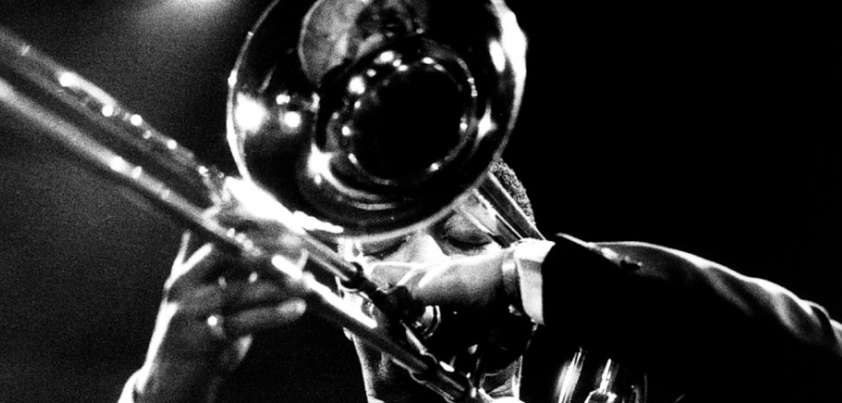 The King of Jazz provides a satirical account of several aspects of the American music scene. Donald Barthelme loved jazz, and his main target here are fickle music critics and the way they try to out-do each other with flowery and often meaningless language when describing performances. He also makes fun of the ‘cutting contests’ once used by musicians to judge themselves against one another and, in so doing, satirizes the system of ‘chair challenges’ that were (are?) common in U.S. school bands. Finally, he sends up the notion that American musicians are the preeminent force in world jazz. More…
The King of Jazz provides a satirical account of several aspects of the American music scene. Donald Barthelme loved jazz, and his main target here are fickle music critics and the way they try to out-do each other with flowery and often meaningless language when describing performances. He also makes fun of the ‘cutting contests’ once used by musicians to judge themselves against one another and, in so doing, satirizes the system of ‘chair challenges’ that were (are?) common in U.S. school bands. Finally, he sends up the notion that American musicians are the preeminent force in world jazz. More…
The Hit Man
 T. C. Boyle’s The Hit Man is a clever satire of the short story genre. Written in short paragraphs under sub-headings, the story contains all the necessary elements of a short story. What makes it unusual is that Boyle is able to provide a meaningful account of his protagonist’s entire life (boyhood, adolescence, courtship, death of parents, ‘career’, marriage, family, retirement, death… and even dislike of peas!) in less than 1,200 words. He also manages to deal with some serious issues (bullying, schoolyard violence, judicial system failure, gratuitous murder, glamorized crime and death) along the way. More…
T. C. Boyle’s The Hit Man is a clever satire of the short story genre. Written in short paragraphs under sub-headings, the story contains all the necessary elements of a short story. What makes it unusual is that Boyle is able to provide a meaningful account of his protagonist’s entire life (boyhood, adolescence, courtship, death of parents, ‘career’, marriage, family, retirement, death… and even dislike of peas!) in less than 1,200 words. He also manages to deal with some serious issues (bullying, schoolyard violence, judicial system failure, gratuitous murder, glamorized crime and death) along the way. More…
The Eyes Have It / The Girl on the Train
 In this story by Ruskin Bond, a blind man sitting in an empty train carriage is joined by a young woman. He is attracted by the sound of her voice as she farewells her family, and even the sound of her slippers. As he initiates a conversation, he decides to conceal the fact that he is blind. This extends to pretending to look out the window and describe the passing countryside. He is successful, only to learn after the woman exits the train that she is also blind. Themes include independence, loneliness, desire, self-consciousness, pretence, perception vs. reality. More…
In this story by Ruskin Bond, a blind man sitting in an empty train carriage is joined by a young woman. He is attracted by the sound of her voice as she farewells her family, and even the sound of her slippers. As he initiates a conversation, he decides to conceal the fact that he is blind. This extends to pretending to look out the window and describe the passing countryside. He is successful, only to learn after the woman exits the train that she is also blind. Themes include independence, loneliness, desire, self-consciousness, pretence, perception vs. reality. More…
The Blue Jar
 In this Isak Dinesen (aka Karen Blixen) story, a shipwreck leads to a quest. A sailor rescues the daughter of an art-collecting nobleman from a burning ship. They spend nine days alone in a lifeboat, during which they become lovers. The nobleman pays the sailor to return to sea, and she spends the rest of her life sailing the world, ostensibly seeking a uniquely colored Chinese porcelain jar. The jar, a symbol of the woman’s lost youth and time in the lifeboat, becomes her final resting place. Themes: enduring love, class, aging, beauty in art vs. the beauty of nature. More…
In this Isak Dinesen (aka Karen Blixen) story, a shipwreck leads to a quest. A sailor rescues the daughter of an art-collecting nobleman from a burning ship. They spend nine days alone in a lifeboat, during which they become lovers. The nobleman pays the sailor to return to sea, and she spends the rest of her life sailing the world, ostensibly seeking a uniquely colored Chinese porcelain jar. The jar, a symbol of the woman’s lost youth and time in the lifeboat, becomes her final resting place. Themes: enduring love, class, aging, beauty in art vs. the beauty of nature. More…
Happy-Endings
 The six “mini-stories” in this short meta-fictional narrative from Margaret Atwood satirize a common element of the story form. In the process, they touch on a myriad of themes including marriage and romance, family life, self-gratification, desperation, suicide, murder, virtue and compassion. The message seems to be that the ultimate denouement of a story matters little; the key is in its exposition and “How and Why” of events in between. The story also provides a lesson in life: What people will remember most about us after our book is closed is the how and why of the way we lived. More…
The six “mini-stories” in this short meta-fictional narrative from Margaret Atwood satirize a common element of the story form. In the process, they touch on a myriad of themes including marriage and romance, family life, self-gratification, desperation, suicide, murder, virtue and compassion. The message seems to be that the ultimate denouement of a story matters little; the key is in its exposition and “How and Why” of events in between. The story also provides a lesson in life: What people will remember most about us after our book is closed is the how and why of the way we lived. More…
Key Item
 In this story, Isaac Asimov’s favorite supercomputer Multivac has a big problem. It doesn’t respond to commands, and isn’t following its built-in program to self-diagnose the cause. As the global economy depends on Mulitvac, this could result in panic across the world. Teams of technicians have been trying to identify what is wrong for three days. Finally, a scientist discovers the “key item” needed to fix the problem. It is a simple thing that we are all taught to use as children. Themes include the dangers of Artificial Intelligence and/or relying solely on technology, scientific hubris, good manners. More…
In this story, Isaac Asimov’s favorite supercomputer Multivac has a big problem. It doesn’t respond to commands, and isn’t following its built-in program to self-diagnose the cause. As the global economy depends on Mulitvac, this could result in panic across the world. Teams of technicians have been trying to identify what is wrong for three days. Finally, a scientist discovers the “key item” needed to fix the problem. It is a simple thing that we are all taught to use as children. Themes include the dangers of Artificial Intelligence and/or relying solely on technology, scientific hubris, good manners. More…
Hills Like White Elephants
 This story by Ernest Hemingway is aptly set at a railway junction. A couple waiting for a train have an important decision to make that will determine the direction of their lives. Unfortunately, they have reached a point in their relationship where they find it hard to open up and talk about their feelings. Although the man says he will leave it up to the woman, he puts subtle pressure on her to choose his way. Themes: perspective (male vs. female views on pregnancy and abortion), choices and consequences (freedom vs. family), language and communication (disconnection), dependence and control. More…
This story by Ernest Hemingway is aptly set at a railway junction. A couple waiting for a train have an important decision to make that will determine the direction of their lives. Unfortunately, they have reached a point in their relationship where they find it hard to open up and talk about their feelings. Although the man says he will leave it up to the woman, he puts subtle pressure on her to choose his way. Themes: perspective (male vs. female views on pregnancy and abortion), choices and consequences (freedom vs. family), language and communication (disconnection), dependence and control. More…
Hermann the Irascible (Story of the Great Weep)
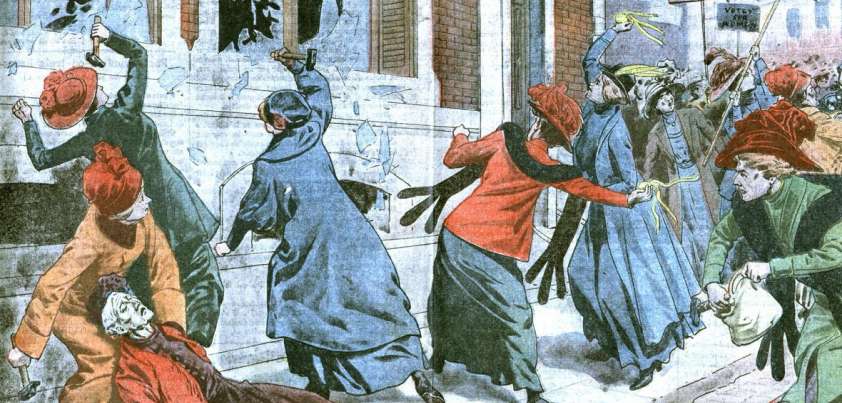 This story by Saki is a classic example of the use of reverse psychology to achieve a desired result… in this case, shutting down the women’s suffrage movement. The story first appeared in 1909 at the height of mass demonstrations of both men and women in support of the cause. I have seen some suggestions that the story trivializes women’s rights. This misses the point that Saki’s use of satire is so “over the top” here that, rather than mocking suffrage, the story highlights and supports it. Themes include human rights, tyranny, manipulation through excess. More…
This story by Saki is a classic example of the use of reverse psychology to achieve a desired result… in this case, shutting down the women’s suffrage movement. The story first appeared in 1909 at the height of mass demonstrations of both men and women in support of the cause. I have seen some suggestions that the story trivializes women’s rights. This misses the point that Saki’s use of satire is so “over the top” here that, rather than mocking suffrage, the story highlights and supports it. Themes include human rights, tyranny, manipulation through excess. More…
The Portrait of a Lady
 Published in 1948, Khushwant Singh’s moving tribute to his grandmother was the first story of his long and distinguished writing career. The story spans a period of twenty years, from Singh’s earliest memories of the “so terribly old but always beautiful” woman, to her peaceful passing in almost surreal circumstances. He recalls their close friendship during his early schooling, the “turning point” when they moved to live with his parents in the city, and their growing estrangement as Western influences and higher education demands came between them. Themes: grandmother-grandson relationship (love, devotion), generation gap (education, culture), piety, change. More…
Published in 1948, Khushwant Singh’s moving tribute to his grandmother was the first story of his long and distinguished writing career. The story spans a period of twenty years, from Singh’s earliest memories of the “so terribly old but always beautiful” woman, to her peaceful passing in almost surreal circumstances. He recalls their close friendship during his early schooling, the “turning point” when they moved to live with his parents in the city, and their growing estrangement as Western influences and higher education demands came between them. Themes: grandmother-grandson relationship (love, devotion), generation gap (education, culture), piety, change. More…
The Laugher
 It is tempting to dismiss this story by Heinrich Böll as an entertaining bit of nonsense. On the surface, it is the unlikely tale of a once aspiring actor whose only talent is laughing convincingly and, where required, infectiously on demand. Although much sought after and a financial success, he detests the work because laughter is not in line with his usually sombre character. The story is a sad metaphor for the millions of people around the world who also find themselves trapped in unsatisfying jobs for which they may not be suited. More…
It is tempting to dismiss this story by Heinrich Böll as an entertaining bit of nonsense. On the surface, it is the unlikely tale of a once aspiring actor whose only talent is laughing convincingly and, where required, infectiously on demand. Although much sought after and a financial success, he detests the work because laughter is not in line with his usually sombre character. The story is a sad metaphor for the millions of people around the world who also find themselves trapped in unsatisfying jobs for which they may not be suited. More…
The Story of an Hour
 Kate Chopin’s The Story of an Hour received a mixed reaction when first published. Released into a male dominated world, the story supports equality for women. The idea that a wife could feel free, free, free and have a look of triumph in her eyes after hearing about her husband’s death was unheard of. It is fortunate that Chopin decided to end the story with Louise dying from joy that kills. One critic has suggested that it would never have been published if she had lived happily ever after. Themes include identity, marriage (oppression vs. love), personal freedom, and grief. More…
Kate Chopin’s The Story of an Hour received a mixed reaction when first published. Released into a male dominated world, the story supports equality for women. The idea that a wife could feel free, free, free and have a look of triumph in her eyes after hearing about her husband’s death was unheard of. It is fortunate that Chopin decided to end the story with Louise dying from joy that kills. One critic has suggested that it would never have been published if she had lived happily ever after. Themes include identity, marriage (oppression vs. love), personal freedom, and grief. More…
The Dinner Party
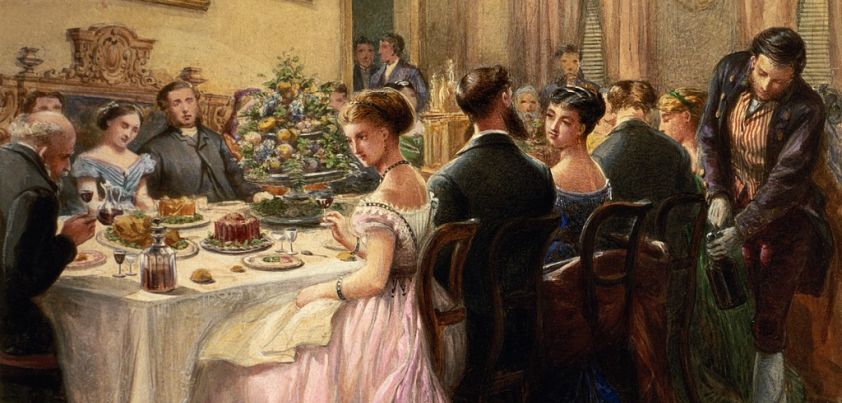 The theme of Mona Gardner’s The Dinner Party is gender stereotyping. The story is a satire of attitudes towards women in upper class colonial England. It begins with a debate over dinner between an army officer and young girl. The officer argues that men are better than women at staying calm during a crisis. The host’s wife proves him wrong by demonstrating nerves of steel when the guests are threatened by a deadly visitor. Although one of the other guests foreshadows the looming danger, the full extent of the woman’s courage is not evident until the final paragraph. More…
The theme of Mona Gardner’s The Dinner Party is gender stereotyping. The story is a satire of attitudes towards women in upper class colonial England. It begins with a debate over dinner between an army officer and young girl. The officer argues that men are better than women at staying calm during a crisis. The host’s wife proves him wrong by demonstrating nerves of steel when the guests are threatened by a deadly visitor. Although one of the other guests foreshadows the looming danger, the full extent of the woman’s courage is not evident until the final paragraph. More…
The Bus Driver Who Wanted To Be God
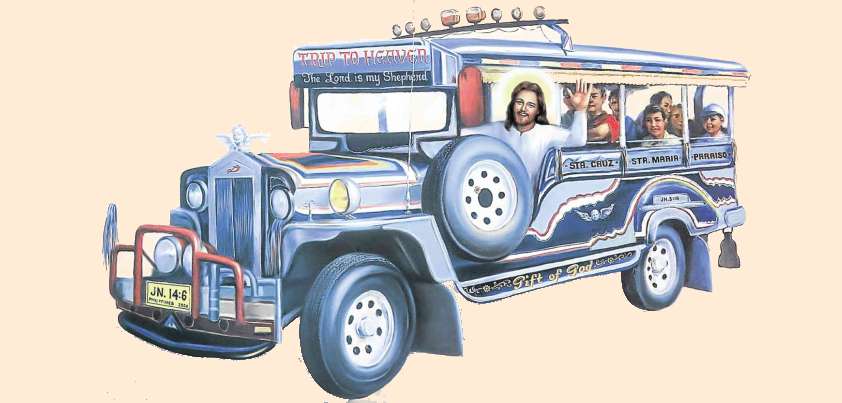 In this Etgar Keret story, a bus driver cares more about social justice than kindness. This may explain why he didn’t get the job he really wanted – to be God. The driver’s attitude suddenly changes when he has an epiphany moment witnessing the misery of Eddie, the world’s nicest loser, who is running late for an important date. Eddie believes that he has found true love in ‘Happiness’, the world’s sweetest girl. Unfortunately, Happiness proves to be a little too sweet. She is planning to stand Eddie up rather than hurt his feelings by admitting she already has a boyfriend. More…
In this Etgar Keret story, a bus driver cares more about social justice than kindness. This may explain why he didn’t get the job he really wanted – to be God. The driver’s attitude suddenly changes when he has an epiphany moment witnessing the misery of Eddie, the world’s nicest loser, who is running late for an important date. Eddie believes that he has found true love in ‘Happiness’, the world’s sweetest girl. Unfortunately, Happiness proves to be a little too sweet. She is planning to stand Eddie up rather than hurt his feelings by admitting she already has a boyfriend. More…
The Butler
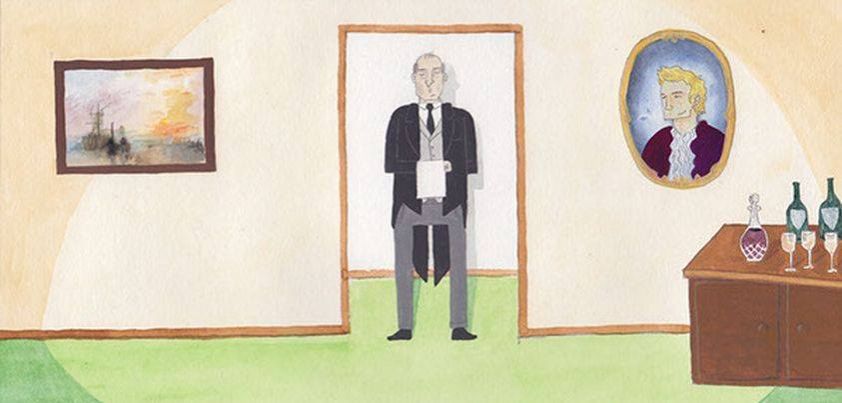 This story by Roald Dahl is about a newly rich man who tries to buy his way up the social ladder. He employs an expensive butler and French chef and hosts many lavish dinner parties. To impress his guests, he buys some of the world’s best wines and learns a lot about them. What he doesn’t learn about are the things that should and shouldn’t be served with fine wine and how to enjoy it. The butler takes advantage of this, and in so doing puts an end to the rich man’s high society hopes. More…
This story by Roald Dahl is about a newly rich man who tries to buy his way up the social ladder. He employs an expensive butler and French chef and hosts many lavish dinner parties. To impress his guests, he buys some of the world’s best wines and learns a lot about them. What he doesn’t learn about are the things that should and shouldn’t be served with fine wine and how to enjoy it. The butler takes advantage of this, and in so doing puts an end to the rich man’s high society hopes. More…
The House on Mango Street / Those Who Don’t / Alicia and I Talking…
 Today we have three short vignettes from Sandra Cisneros’s House on Mango Street. Each deals with an aspect of “place”. The protagonist’s Mexican-American family moves to a new neighborhood. Although far from perfect, their small house is special because they own it. It lies in a Hispanic part of town that most outsiders consider dangerous. However, the only time they feel scared is if they drive through “another color’s” neighborhood. A year later, the protagonist reflects on why the house (of which she is ashamed) doesn’t yet feel like home. Themes: childhood, family, shame, belonging, house vs. home. More…
Today we have three short vignettes from Sandra Cisneros’s House on Mango Street. Each deals with an aspect of “place”. The protagonist’s Mexican-American family moves to a new neighborhood. Although far from perfect, their small house is special because they own it. It lies in a Hispanic part of town that most outsiders consider dangerous. However, the only time they feel scared is if they drive through “another color’s” neighborhood. A year later, the protagonist reflects on why the house (of which she is ashamed) doesn’t yet feel like home. Themes: childhood, family, shame, belonging, house vs. home. More…
The Homecoming (A Puja Story)
 Sometimes the twist in a story is not immediately evident to readers from other cultures. In this story by Banaphool, an Indian insurance agent returning home from an unsuccessful sales trip encounters four strangers in his train compartment. He does his best to sell them a policy until a fifth with a “trunked head” emerges from a top bunk. He then realizes his fellow passengers are important Hindu gods traveling to the upcoming Durga Puja festival. Despite this, he is still able to make a sale. Themes include resilience, embarrassment, persistence, success. More…
Sometimes the twist in a story is not immediately evident to readers from other cultures. In this story by Banaphool, an Indian insurance agent returning home from an unsuccessful sales trip encounters four strangers in his train compartment. He does his best to sell them a policy until a fifth with a “trunked head” emerges from a top bunk. He then realizes his fellow passengers are important Hindu gods traveling to the upcoming Durga Puja festival. Despite this, he is still able to make a sale. Themes include resilience, embarrassment, persistence, success. More…
Earthmen Bearing Gifts
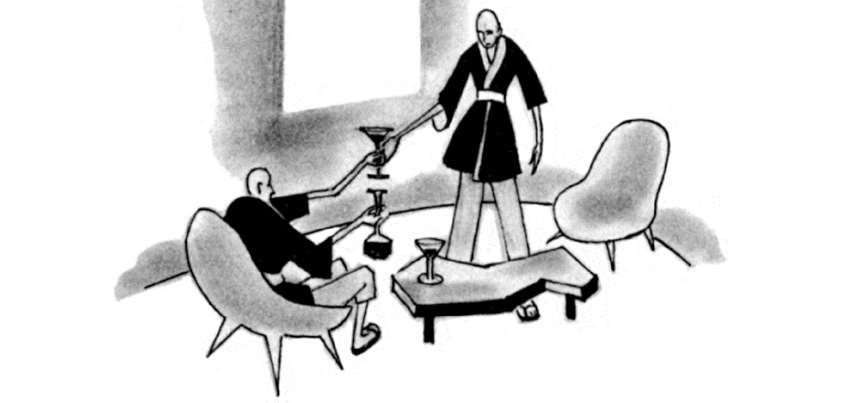 In this sardonic science-fiction story by Fredrick Brown, the people of Mars are looking forward to their first visit from Earth. The planets have planned an exchange of gifts. Each civilization is more advanced in an important area of science. Martians have mastered the para-psychological sciences and can teach Earthmen how to avoid crime and war. The Earth is ahead in technology and the physical sciences. This could help the Martians restore their dying planet. Earth’s first “gift”, delivered in an unmanned spacecraft, is not what the Martians expected. Themes include scientific progress, communication and cooperation, trust, betrayal. More…
In this sardonic science-fiction story by Fredrick Brown, the people of Mars are looking forward to their first visit from Earth. The planets have planned an exchange of gifts. Each civilization is more advanced in an important area of science. Martians have mastered the para-psychological sciences and can teach Earthmen how to avoid crime and war. The Earth is ahead in technology and the physical sciences. This could help the Martians restore their dying planet. Earth’s first “gift”, delivered in an unmanned spacecraft, is not what the Martians expected. Themes include scientific progress, communication and cooperation, trust, betrayal. More…
The Feather Pillow
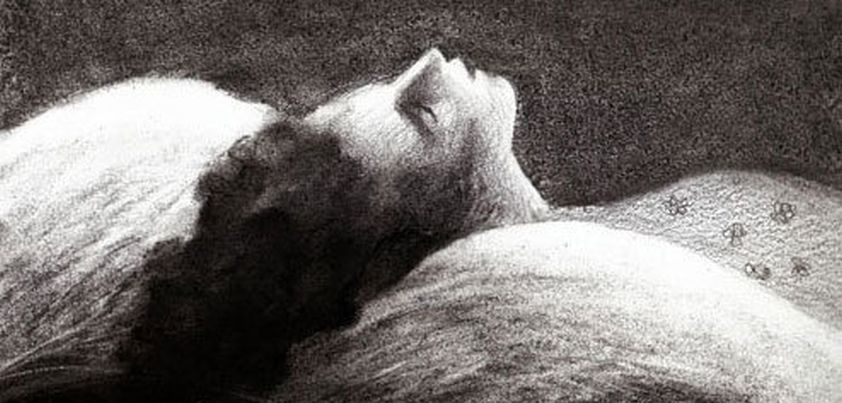 In this story by Horacio Quiroga a healthy young woman slowly wastes away and dies over the three months following her wedding. Her husband’s impassive manner, coupled with spending her days alone in his cavernous, unwelcoming house, destroy her childhood fancies of married life. Her fate is sealed when she decides to cast a veil over her former dreams and live like a sleeping beauty in the hostile house. Later, we learn that it is not their house that is hostile, but her feather pillow. Themes include innocence, love and marriage, isolation and loneliness, disillusionment, depression and death. More…
In this story by Horacio Quiroga a healthy young woman slowly wastes away and dies over the three months following her wedding. Her husband’s impassive manner, coupled with spending her days alone in his cavernous, unwelcoming house, destroy her childhood fancies of married life. Her fate is sealed when she decides to cast a veil over her former dreams and live like a sleeping beauty in the hostile house. Later, we learn that it is not their house that is hostile, but her feather pillow. Themes include innocence, love and marriage, isolation and loneliness, disillusionment, depression and death. More…
Reunion
 This story by Arthur C. Clarke packs a powerful message into just two pages. It takes the form of a radio message reassuring the people of Earth that they have nothing to fear from a group of beings approaching from space. The visitors claim to share a common ancestry with man, both being descended from an advanced race of aliens who colonized Earth during the time of the dinosaurs. Those who could fled when a terrible genetic plague brought on division, conflict and savagery among the population. They are returning with a cure for any who might still be affected. More…
This story by Arthur C. Clarke packs a powerful message into just two pages. It takes the form of a radio message reassuring the people of Earth that they have nothing to fear from a group of beings approaching from space. The visitors claim to share a common ancestry with man, both being descended from an advanced race of aliens who colonized Earth during the time of the dinosaurs. Those who could fled when a terrible genetic plague brought on division, conflict and savagery among the population. They are returning with a cure for any who might still be affected. More…
A Clean Well-Lighted Place
 This story by Ernest Hemingway takes place in a cafe. Two waiters (one young, the other middle-aged) talk about an old man sitting alone at one of the tables. A line from each waiter exemplifies three major themes. From the young waiter: I wouldn’t want to be that old. An old man is a nasty thing. (attitudes towards the aged). From the older waiter: It [life] was all a nothing and a man was a nothing too. (emptiness and despair). Other themes include aging and death, gender stereotyping, and the fact that money doesn’t buy happiness. More…
This story by Ernest Hemingway takes place in a cafe. Two waiters (one young, the other middle-aged) talk about an old man sitting alone at one of the tables. A line from each waiter exemplifies three major themes. From the young waiter: I wouldn’t want to be that old. An old man is a nasty thing. (attitudes towards the aged). From the older waiter: It [life] was all a nothing and a man was a nothing too. (emptiness and despair). Other themes include aging and death, gender stereotyping, and the fact that money doesn’t buy happiness. More…
Barney
 It is hard to write an introduction to this Will Stanton story without giving the ending away. Like another of our featured stories, Flowers for Algernon, the plot involves a scientist conducting a bizarre experiment to increase the intelligence of a very special rat (in this case Barney). The major theme is the potential catastrophic effect of poorly controlled scientific experiments. Because Barney is humanized a little more than Algernon (he enjoys flipping through books in the library as opposed to simply running through mazes), a secondary theme is the ethics of animal testing. Other themes: deception, narrow-mindedness, revenge. More…
It is hard to write an introduction to this Will Stanton story without giving the ending away. Like another of our featured stories, Flowers for Algernon, the plot involves a scientist conducting a bizarre experiment to increase the intelligence of a very special rat (in this case Barney). The major theme is the potential catastrophic effect of poorly controlled scientific experiments. Because Barney is humanized a little more than Algernon (he enjoys flipping through books in the library as opposed to simply running through mazes), a secondary theme is the ethics of animal testing. Other themes: deception, narrow-mindedness, revenge. More…
The Night of the Ugly Ones
 This story by Mario Benedetti examines the concept of “ugliness” and the feelings of exclusion experienced by people with physical deformities when others turn away or pretend not to notice them. A man and woman, both with significant facial blemishes, meet at a movie and connect over coffee. (You’d like a face as smooth as that young girl’s on your right, even though you’re intelligent and she, judging by her laugh, is a hopeless idiot.) Their lovemaking later that night takes a curious turn, with both ending up in tears. Themes include isolation and loneliness, humanity, internal vs. external beauty. More…
This story by Mario Benedetti examines the concept of “ugliness” and the feelings of exclusion experienced by people with physical deformities when others turn away or pretend not to notice them. A man and woman, both with significant facial blemishes, meet at a movie and connect over coffee. (You’d like a face as smooth as that young girl’s on your right, even though you’re intelligent and she, judging by her laugh, is a hopeless idiot.) Their lovemaking later that night takes a curious turn, with both ending up in tears. Themes include isolation and loneliness, humanity, internal vs. external beauty. More…
Babycakes
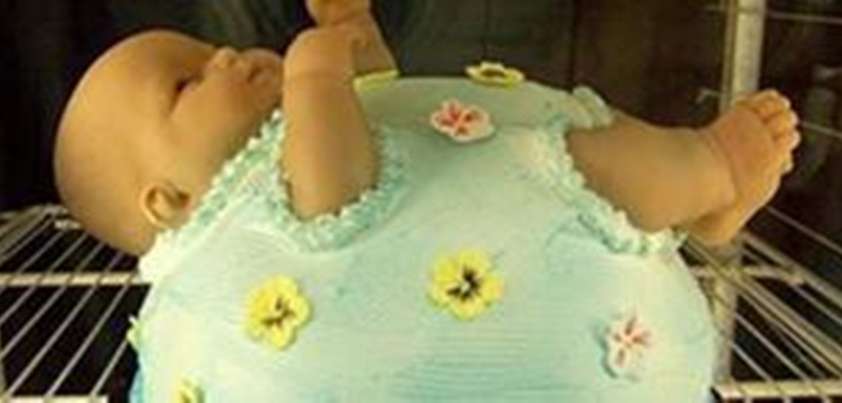 Although written for a worthy cause (PETA, People for the Ethical Treatment of Animals), many readers find this satirical vignette by Neil Gaiman very disturbing. The story provides a modern take on Jonathan Swift’s infamous 1729 satirical essay A Modest Proposal, which advocated solving an Irish famine by having the very poor sell their babies to the rich: A young healthy child well nursed, is, at a year old, a most delicious nourishing and wholesome food, whether stewed, roasted, baked, or boiled… OMG! Themes include greed, animal cruelty, sustainability, hubris (the superiority of man). More…
Although written for a worthy cause (PETA, People for the Ethical Treatment of Animals), many readers find this satirical vignette by Neil Gaiman very disturbing. The story provides a modern take on Jonathan Swift’s infamous 1729 satirical essay A Modest Proposal, which advocated solving an Irish famine by having the very poor sell their babies to the rich: A young healthy child well nursed, is, at a year old, a most delicious nourishing and wholesome food, whether stewed, roasted, baked, or boiled… OMG! Themes include greed, animal cruelty, sustainability, hubris (the superiority of man). More…
The Other Wife / Woman
 In this vignette by French author Colette, a recently married couple visiting a restaurant chance upon the husband’s ex-wife. She is attractive, sophisticated and self-assured. Alice, the new wife, is younger, naïve, submissive and insecure. The self-centered, controlling husband cannot understand why his first wife had “difficulty” with their relationship. The new marriage, in which Alice flirtatiously plays the part of a trophy wife, appears more to his liking. Unfortunately for him, the encounter raises doubts and a question in Alice’s mind: What more did she (the ex-wife) want from him? She finds herself envying and respecting the stronger woman. More…
In this vignette by French author Colette, a recently married couple visiting a restaurant chance upon the husband’s ex-wife. She is attractive, sophisticated and self-assured. Alice, the new wife, is younger, naïve, submissive and insecure. The self-centered, controlling husband cannot understand why his first wife had “difficulty” with their relationship. The new marriage, in which Alice flirtatiously plays the part of a trophy wife, appears more to his liking. Unfortunately for him, the encounter raises doubts and a question in Alice’s mind: What more did she (the ex-wife) want from him? She finds herself envying and respecting the stronger woman. More…
Last Day at School
 This very short story describes the feelings of a teacher on the last day of a school year. It is clear from the story that the teacher cares greatly for his students. Grades have been sent home and the long holiday is about to begin. For the teacher, it is an especially memorable day. As well as being the end of the school year, he is leaving teaching and moving on to a different career. Last Day at School was written by Italian teacher-turned-journalist Giovanni Mosca, and presumably talks about his own feelings on leaving teaching in 1936. More…
This very short story describes the feelings of a teacher on the last day of a school year. It is clear from the story that the teacher cares greatly for his students. Grades have been sent home and the long holiday is about to begin. For the teacher, it is an especially memorable day. As well as being the end of the school year, he is leaving teaching and moving on to a different career. Last Day at School was written by Italian teacher-turned-journalist Giovanni Mosca, and presumably talks about his own feelings on leaving teaching in 1936. More…
The Disk
 Jorge Borges gives this story a timeless quality by setting it in medieval times and framing it like a fairy-tale. A traveler arrives at an isolated woodcutter’s hut claiming to be an exiled king descended from Odin, the Norse king of the gods. He supports this by showing the woodcutter what he claimss to be the disk of Odin, the only one-dimensional object in the universe. Ironically, the woodcutter answers: I do not worship Odin, I worship Christ… and then kills him to possess Odin’s disk. Theme: the desire to own something that holds power over the world around us. More…
Jorge Borges gives this story a timeless quality by setting it in medieval times and framing it like a fairy-tale. A traveler arrives at an isolated woodcutter’s hut claiming to be an exiled king descended from Odin, the Norse king of the gods. He supports this by showing the woodcutter what he claimss to be the disk of Odin, the only one-dimensional object in the universe. Ironically, the woodcutter answers: I do not worship Odin, I worship Christ… and then kills him to possess Odin’s disk. Theme: the desire to own something that holds power over the world around us. More…